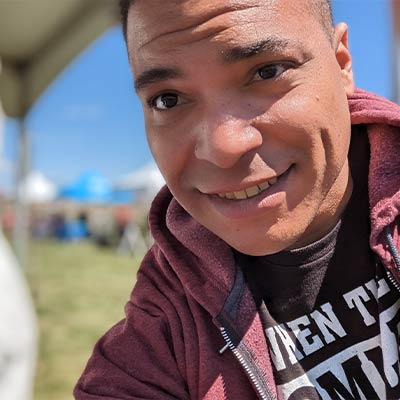Courses & Requirements
MA in Clinical Mental Health Counseling, Somatic Counseling: Body Psychotherapy Concentration
The Somatic Counseling: Body Psychotherapy concentration draws upon the diverse field of body-centered psychotherapy and trains students to integrate bodywork, movement, and somatic education principles with counseling and psychotherapy skills. Formed alongside modern Western psychotherapy through the work of Reich, Lowen, Pierrakos, Keleman, Perls, Kurtz, Gendlin, and others, it integrates traditional therapeutic practices with attention to sensation and body states, allowing unconscious material to manifest and be worked with using breath, touch, movement, sensation, and imagery. The Somatic: Body Psychotherapy concentration focuses on the classical energy model of body psychotherapy, as well as object relations and self-psychology, the Gestalt-based Moving Cycle, and other modern models of sensorimotor tracking, conscious movement, and relational techniques.
MA in Clinical Mental Health Counseling
It is possible for a student graduating from the Somatic: Body Psychotherapy concentration to use coursework to fulfill the requirements for the International Somatic Movement Education and Therapy Association’s (ISMETA) certification as a Registered Somatic Movement Therapist (RSMT) and/or Registered Somatic Movement Educator (RSME).
Degree Requirements*
*Pending final approval by the Higher Learning Commission. Course offerings and sequencing are subject to change.
Semester 1 (Fall, Year 1)
- CMHC 600, Foundations and Orientation of Clinical Mental Health Counseling (3)
- CNSS 646, Contemplative Practices for Somatic Counseling I (1)
- CMHC 601, Social/Multicultural Foundations (3)
- CNSB 627, Foundations of Somatic Counseling (2)
Credits 9
Semester 2 (Spring, Year 1)
- CMHC 603, Counseling and Helping Relationships I (3)
- CMHC 602, Human Growth and Development (3)
- CNSS 658, Applied Anatomy and Neuroscience in Counseling (2)
- CNSS 622, Body/Movement Observation/Assessment (3)
Credits 11
Summer (Year 1)
- Off
Credits 0
Semester 3 (Fall, Year 2)
- CMHC 604, Counseling and Helping Relationships II (3)
- CMHC 605, Group Counseling (3)
- CMHC 606, Legal and Ethical Aspects of Counseling (3)
- CNSB 716, Specialized Approaches of Somatic Counseling (2)
Credits 11
Semester 4 (Spring, Year 2)
- CNSS 663, Family Systems: Methods of Family Therapy (3)
- CNSS 606, Advanced Counseling Skills (3)
- CMHC 607, Diagnosis and Treatment Planning (3)
- CMHC 620, Counseling Practicum (3)
Credits 12
Semester 5 (Summer, Year 2)
- CMHC 609, Research & Program Evaluation (3)
- CMHC 608, Assessment (3)
- CNSD 621, Extended Practicum (DMT) (1)
Credits 7
Semester 6 (Fall, Year 3)
- CMHC 622, Internship I (3)
- CNSS 664, Crisis, Trauma, and Distaster Counseling (3)
- CMHC 615, Capstone I (1)
Credits 7
Winter Intercession
- CMHC 623, Winter Intercession Internship (0)
Credits 0
Semester 7 (Spring, Year 3)
- CMHC 624, Internship II (3)
- CMHC 610, Career Development (3)
- CMHC 616, Capstone II (1)
Credits 7
Total Credits: 65
Menu

Connect
with your counselor
Jeffrey Neering
Graduate Admissions Counselor



